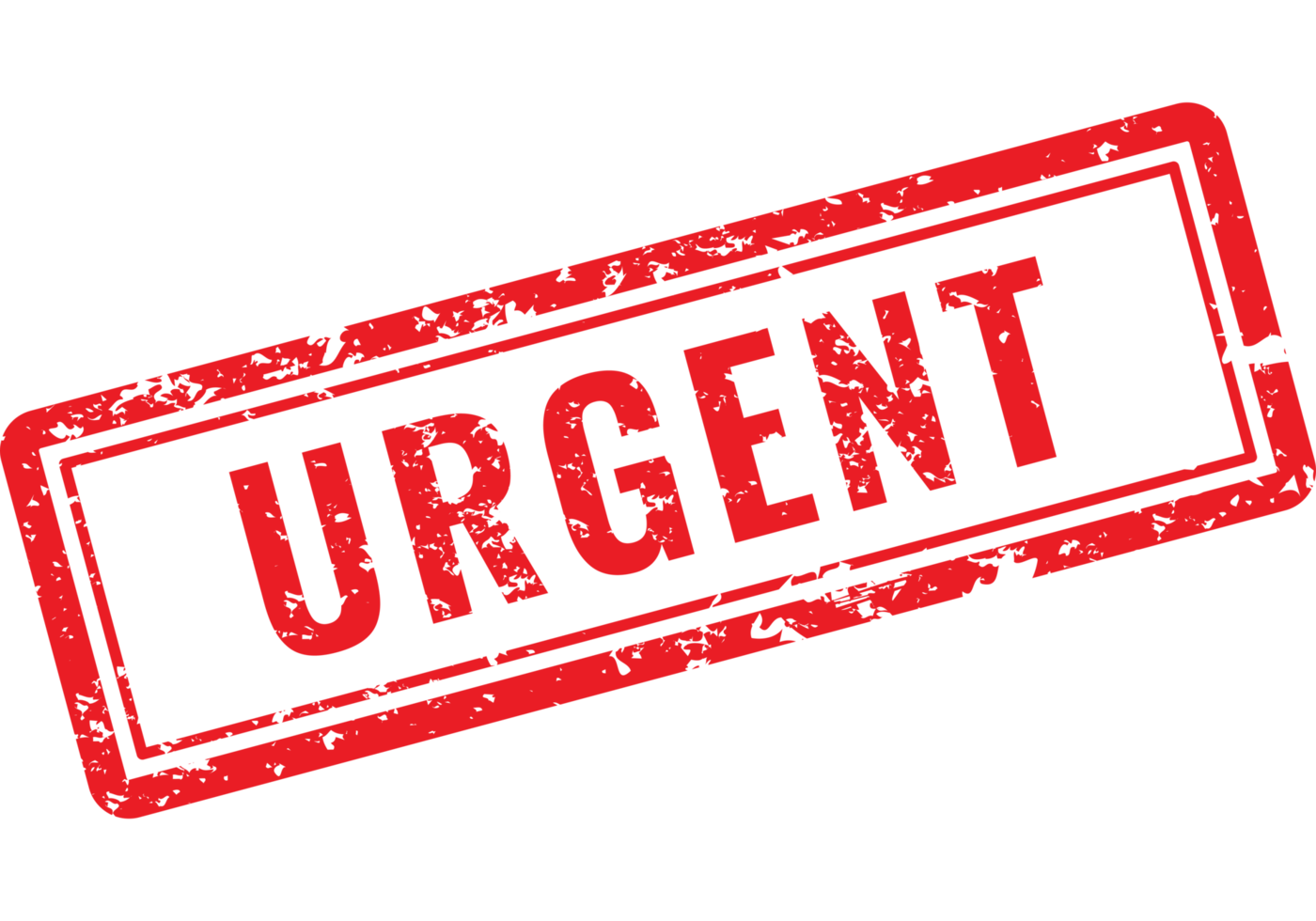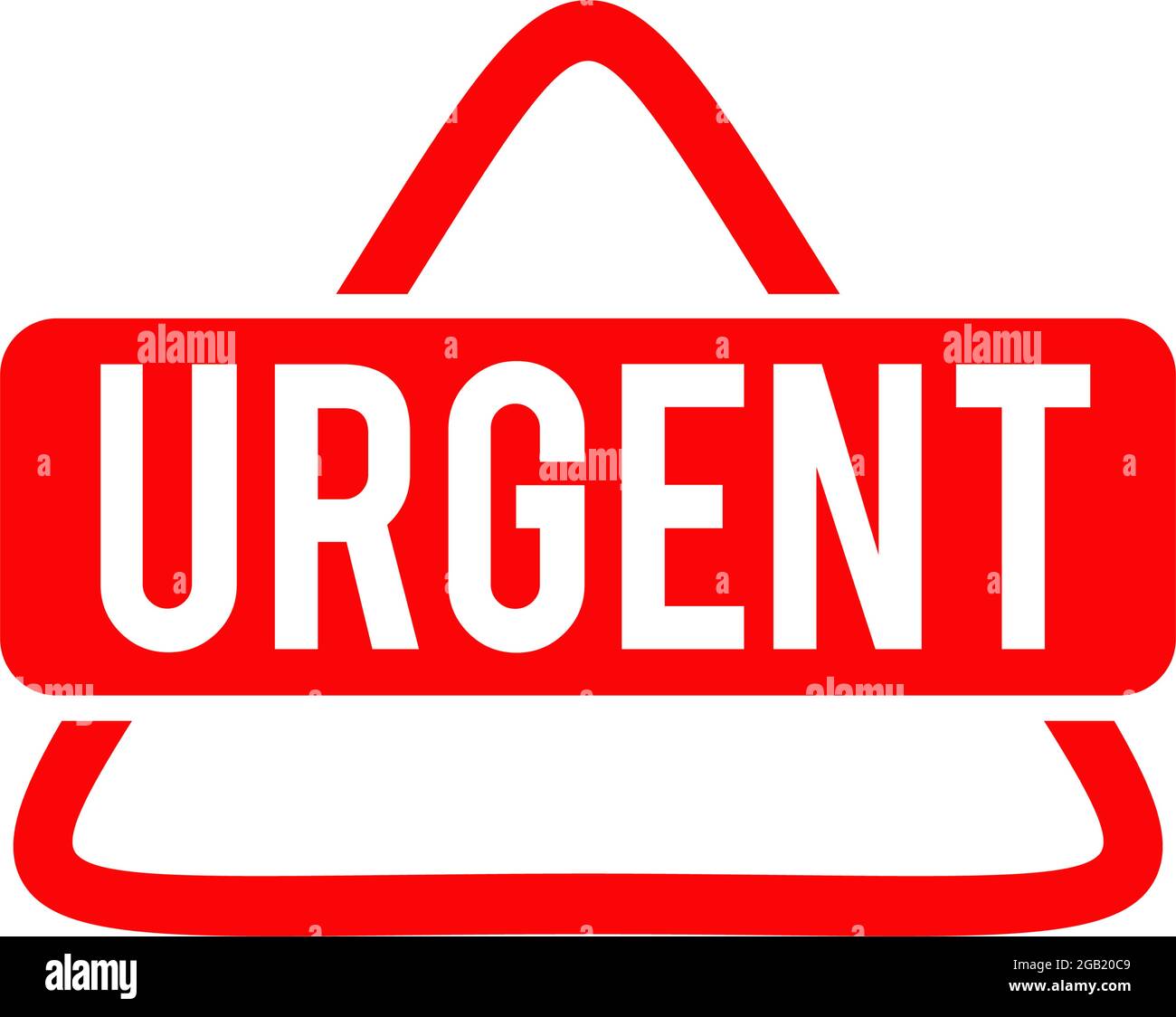Healthcare, it seems, is always finding new ways to help people get the care they need, when they need it. One big way this is happening is through the growth of places called urgent care centers. These spots are popping up more and more, making it easier for folks to get medical help without having to wait a long time or go to a big hospital emergency room for things that aren't quite life-threatening. It's almost like a helpful middle ground, you know, for those times when you feel pretty unwell but aren't in a true crisis.
When something is described as urgent, it means it calls for immediate attention, like right away. My text points out that urgent situations often involve a pressing need for prompt action, perhaps to keep bad things from happening or to deal with something that just came up. Think about it: if you happen to break a bone, that definitely needs immediate attention at a hospital. Doctors will look after you without delay. Urgent care centers step in for those situations that aren't quite that serious, but still can't wait for a regular doctor's visit a few days later. It's for when you need care quickly, but not the kind of care that requires a full emergency department.
This idea of things needing immediate care, but not emergency care, is what really drives the increase in urgent care centers. People are looking for convenient ways to get help for things like a bad cold, a sprain, or a minor cut. So, the push to have more of these centers around is, in some respects, a direct answer to what people are looking for in their health services. It's about making sure that when something comes up that needs a quick look, there's a place ready to help.
- Chip And Joanna Gaines Net Worth
- Rolling Stones Lead Singer
- Michael B Jordan Children
- Jake Harris Deadliest Catch
- Tiana Brown
Table of Contents
- What Makes Care "Urgent," Anyway?
- Why Are We Seeing More Urgent Care Expansion?
- How Does Urgent Care Expansion Help You?
- Getting Care When You Need It - Urgent Care Expansion Benefits
- Are There Any Snags with Urgent Care Expansion?
- Making Sure Quality Stays High - Urgent Care Expansion Challenges
- The Road Ahead for Urgent Care Expansion
What Makes Care "Urgent," Anyway?
When we talk about something being "urgent," what does that truly mean in the context of getting medical help? Well, my text tells us that "urgent" means something calling for immediate attention. It's about a situation that requires quick action. Think about it: a situation that is "very important and needing attention immediately." It's not a small thing you can put off. For example, if you have a fever that just won't go down, or a nasty cough that's making it hard to breathe easily, that's the sort of thing that needs a quick look. It's not a heart attack, but it's also not something you want to wait days to get checked out. So, it's about a pressing need, really, for prompt action to keep negative outcomes from happening.
The definition of "urgent" also talks about something compelling or requiring immediate action. This is where urgent care centers fit in so well. They are set up to deal with these kinds of situations. They are for those times when you might be feeling quite unwell, but you don't believe it's a true emergency that needs the full resources of a hospital emergency room. My text highlights that when something is urgent, it requires immediate attention or action. This means these centers are ready to help you quickly, without the long waits that can sometimes happen in an emergency department when you're not facing a life-or-death situation. They are, in a way, a speedy way to get help for things that can't wait but aren't a big crisis.
A key idea from my text is that an urgent situation implies a pressing need for prompt action to prevent negative consequences. This is the core reason for urgent care. It's about getting help before a minor issue becomes a major one. For instance, a bad cut might not be life-threatening, but it needs to be cleaned and closed quickly to prevent infection. An urgent care center can do that, and do it fast. This saves you a trip to a much busier place and helps you get on the path to feeling better sooner. It's about addressing a problem right away, so it doesn't get worse. That's the main idea behind urgent care, you know, being there for those immediate needs that aren't quite an emergency.
- John Mayer Controversy
- Rick Owens And His Wife
- How Long Has Ynw Melly Been In Jail
- Why Did Shemar Moore Leave Criminal Minds
- Jon Cryer Wife
Why Are We Seeing More Urgent Care Expansion?
So, why are these urgent care centers popping up everywhere? There are a few big reasons. For one, emergency rooms, while absolutely vital for serious health issues, often get crowded with people who don't have true emergencies. Someone with a bad cold or a sprained ankle might go to the ER because they feel they have no other choice for quick help. This can make the wait times very long for everyone, even for those who are truly in a serious medical situation. The growth of urgent care expansion helps ease this burden on emergency departments, freeing them up for the most serious cases. It's a way to sort of spread out the need for immediate medical attention.
Another reason is simply how people live their lives now. Folks are busy, and they need health services that fit into their schedules. It's not always easy to get an appointment with a family doctor right away, especially for something that just came up suddenly. Urgent care centers offer a walk-in option, meaning you don't need an appointment. You can just show up when you need to. This convenience is a big draw for many people, making urgent care expansion a very welcome sight. It means you can get help when you need it, without a lot of planning ahead, which is pretty useful, you know.
Also, the cost of getting care plays a part. A visit to an urgent care center is usually much less expensive than a trip to the emergency room for the same kind of health problem. For people trying to manage their health spending, this is a really big deal. It means they can get the care they need without worrying about a huge bill later. This financial aspect, combined with the quick access, makes urgent care expansion a sensible choice for many health systems and for individuals. It's about providing good care that is also affordable for many people.
How Does Urgent Care Expansion Help You?
When you think about the growth of urgent care centers, it's really about bringing health services closer to where people live and work. For someone who suddenly feels unwell, having an urgent care center nearby means they don't have to travel far or spend a lot of time getting to a place for help. This local presence is a big comfort, especially when you're not feeling your best. It means that when you need a quick check for something like a nasty cough or a minor injury, there's likely a place just a short drive away. This accessibility is, in a way, a major benefit for communities.
The speed of service at these centers is another key advantage. As my text says, urgent situations require immediate attention. Urgent care centers are set up to provide just that. You can often walk in and be seen by a medical professional much faster than you would at a hospital emergency room, especially for issues that are not life-threatening. This quick attention means you can get a diagnosis and a treatment plan sooner, helping you feel better faster. It's about reducing the time you spend waiting and increasing the time you spend getting better, which is pretty nice, if you think about it.
Moreover, these centers help make sure that people get the right kind of care for their specific health needs. If you have a true emergency, like chest pain or a very bad accident, the emergency room is absolutely the place to go. But for things that are urgent but not life-threatening, an urgent care center is often the more appropriate spot. This helps keep the emergency rooms clear for true emergencies, and it also means you're getting care that is well-suited to your particular issue. It's about directing people to the best place for their health situation, which helps the whole health system work more smoothly.
Getting Care When You Need It - Urgent Care Expansion Benefits
One of the biggest benefits of urgent care expansion is simply convenience. Imagine you wake up with a really bad sore throat, or your child gets a cut that needs a few stitches. It's the weekend, and your regular doctor's office is closed. What do you do? An urgent care center is there for you. You can just go in, without an appointment, and get the care you need right then. This flexibility is a huge help for busy families and individuals who can't always plan when they'll need medical attention. It means that immediate needs can be met without a lot of fuss, which is pretty helpful, you know.
Then there's the benefit of keeping health costs down, both for individuals and for the health system as a whole. As mentioned, a visit to an urgent care center for something like a sprain or a sinus infection costs much less than going to the emergency room for the same issue. This can save people a good deal of money. For health insurance companies and the overall health budget, it means resources are used more wisely. This cost-effectiveness is a big part of why urgent care expansion is seen as a smart move. It's about getting good care without breaking the bank, which is a big concern for many families.
Finally, these centers help reduce the pressure on hospital emergency departments. When people go to urgent care for minor issues, it means the emergency room staff can focus on the most serious cases, like heart attacks, strokes, or major accidents. This can lead to shorter wait times for everyone in the ER and better care for those who truly need critical attention. It's like having a dedicated lane for quicker service, which helps the main highway stay clear for the big trucks. This benefit of urgent care expansion helps the entire community by making sure critical resources are available for critical needs.
Are There Any Snags with Urgent Care Expansion?
While the growth of urgent care centers brings many good things, there are, of course, some things to think about. One potential issue is making sure that the quality of care stays high across all these new locations. When centers are opening quickly, it's important to have good checks in place to ensure that every patient receives good, consistent care. This means making sure there are enough well-trained medical professionals, that the equipment is up to standard, and that the proper procedures are followed every time. It's about keeping a close eye on things, so, you know, people get the best care possible no matter which center they visit.
Another thing to consider is how these centers fit into the bigger picture of a person's health. Ideally, everyone has a regular family doctor who knows their health history well. Urgent care centers are great for immediate, one-time issues, but they don't replace the ongoing relationship with a primary care provider. Sometimes, if a patient goes to many different urgent care centers, it can be harder for one doctor to have a full picture of their health. So, it's important for these centers to communicate with a patient's regular doctor, or to encourage patients to follow up with their own doctor after a visit. It's about making sure the care is connected, in a way, to a person's overall health journey.
Staffing can also be a challenge. With so many new centers opening, there's a need for a lot of skilled doctors, nurses, and other health workers. Finding enough qualified people to work in all these places can be a bit of a hurdle. It's important to make sure that these centers are not just open, but that they are also well-staffed with people who can provide good care. This means thinking about how to train more health professionals and how to encourage them to work in these settings. It's a question of making sure there are enough hands on deck, so to speak, to meet the growing need for urgent care expansion.
Making Sure Quality Stays High - Urgent Care Expansion Challenges
A big part of making sure urgent care expansion is truly good for everyone involves keeping the quality of care consistently high. This means having clear standards for how care is given, what kind of training the staff needs, and what equipment should be available. If centers open too quickly without these checks, there's a chance that the level of care might not be the same everywhere. It's like making sure every cookie from a new bakery tastes just as good as the first one you tried. So, there needs to be a system for checking up on these centers regularly to make sure they are meeting good health care standards.
Another challenge is making sure that patients understand when to go to urgent care versus when they truly need an emergency room. My text emphasizes that urgent means calling for immediate attention, but it's different from a life-or-death situation. There's a need to help people understand this difference so they go to the most appropriate place for their health problem. If someone with a very serious issue, like a stroke, goes to urgent care instead of the ER, it could lead to delays in getting critical, life-saving help. So, educating the public about the best place to go for different kinds of health issues is a real task for urgent care expansion.
Finally, there's the challenge of making sure urgent care centers are well-integrated into the broader health system. This means they should be able to easily share patient information with a patient's regular doctor, and also know when to send a patient to a specialist or a hospital if their condition turns out to be more serious. Without good communication and connections, a patient's health story can become fragmented. It's about making sure that these centers are not just standalone places, but rather a helpful part of a person's complete health care journey. This connection is, in a way, vital for truly good care.
The Road Ahead for Urgent Care Expansion
Looking to the future, it seems very likely that urgent care expansion will keep growing. People really like the convenience and the quicker access to care that these centers offer. As our population changes and people become more used to getting things quickly, the demand for these types of services will probably continue to rise. It's almost like a natural fit for how people live their lives today, seeking immediate solutions for immediate needs. So, we can expect to see more of these centers in more neighborhoods, making health services even more accessible to many folks.
There's also a good chance that these centers will start to offer even more services. Right now, they handle things like minor injuries, colds, and infections. But in the future, they might take on a wider range of health issues, perhaps even some basic preventive care or follow-up visits for certain conditions. This would make them even more valuable to communities. It's about them growing into even more comprehensive places for quick health help, which could be very beneficial for people who struggle to get regular doctor's appointments. This broadening of services is, in some respects, a logical next step for urgent care expansion.
Ultimately, the continued growth of urgent care expansion is about making health services more responsive to what people actually need. It's about having places that can provide immediate attention for those situations that are urgent but not quite an emergency, just as my text describes the meaning of "urgent." This helps everyone, from the patient who gets quick care to the emergency room that can focus on the most serious cases. It's about creating a health system that is more flexible and more available, truly meeting people where they are and helping them get better faster. This ongoing development is really about building a more helpful and accessible way for people to look after their health.
Related Resources:
Detail Author:
- Name : Evelyn Champlin
- Username : macey.hermann
- Email : tyson12@lemke.info
- Birthdate : 1999-03-20
- Address : 66654 Adams Cliff Apt. 830 Bashirianfurt, VT 98020-7446
- Phone : +1.310.254.5824
- Company : Stiedemann PLC
- Job : Loan Interviewer
- Bio : Ut nihil impedit beatae consequatur. Saepe cumque ut voluptas dolore qui quod. Error magni laudantium maiores. Laboriosam aut voluptatem minus nobis tempore autem commodi.
Socials
instagram:
- url : https://instagram.com/matteo.kovacek
- username : matteo.kovacek
- bio : Ut sunt officia in repellendus. Velit iure repudiandae animi est quasi numquam.
- followers : 3736
- following : 571
tiktok:
- url : https://tiktok.com/@mkovacek
- username : mkovacek
- bio : Ut pariatur voluptatibus dolor saepe omnis maxime et.
- followers : 6473
- following : 1196



